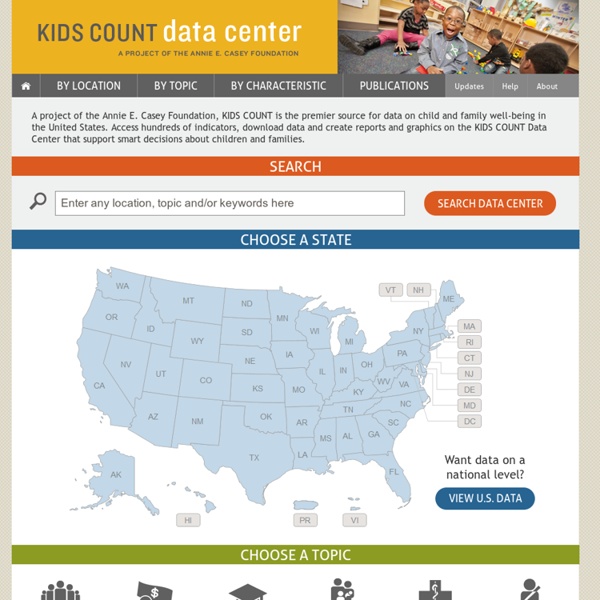



ColorOfChange | Changing the Color of Democracy Indicators of Child Well-Being Resources For Welfare Decisions Indicators of Child Well-Being Background Indicators of child well-being increasingly are being used by federal, state and local governments and by nonprofit organizations to measure the impact of welfare reform and other social policies on children and their families. Child well-being indicators assess health status, cognitive functioning, and social and emotional status and encompass a wide range of variables including educational opportunity, economic security, food security, and family/neighborhood environments. Electronic Resources Annie E. Child Trends, Inc., Brett Brown, 202/362-5580. Children's Defense Fund, 202/662-3576 or cdfactioncouncil@childrensdefense.org.or Federal Interagency Forum on Child and Family Statistics, Laura Lippman, 202/502-7383 or laura_lippman@ed.gov; Tom Snyder, 202/502-7452 or tom_snyder@ed.gov; Publications and Electronic Resources
SAMHDA Site Updated files include revised mental illness variables that are based on a revised statistical model which predicts whether an adult NSDUH respondent had serious, moderate, mild, or no mental illness. The revised mental illness variables in the 2008 to 2011 NSDUH public-use data files are now comparable to the mental illness variables available in the 2012 NSDUH data file. For more information on the updated variables, users may refer to the "New and Corrected Data Since Last Release" section of the codebooks for each year. Additional information on the revised model is available in the technical report from SAMHSA. In addition, the NSDUH: 2-Year R-DAS (2002-2003, 2004-2005, 2006-2007, 2008-2009, and 2010-2011) file has been updated with the revised mental illness variables.
National Association for the Education of Young Children | NAEYC CSDC - Institute for Economic Advancement Created in April 1979, the Census State Data Center (CSDC) is the official representative of the U. S. Bureau of the Census in Arkansas. The national State Data Center Program is a partnership between each state and the Census Bureau and a SDC exists in all states plus the U. The CSDC assists the Census Bureau in promoting the decennial census but its main responsibility is one of dissemination. The Arkansas Census State Data Center network consists of over 40 agencies and organizations. SERVICES include: Answering questions Technical consulting Programming Special tabulations and reports Data analysis User training Presentations at workshops and conferences INFORMATION about: Historical census information Population and Housing Economic Censuses reports Children and families Environmental, economic, demographic, and social databases PRODUCTS available: Printed reports Diskettes CD-ROMs Maps Internet Unpublished data USERS served: ASSISTANCE provided:
Rethink Afghanistan War Bendheim-Thoman Center for Research on Child Wellbeing USHIK: United States Health Information Knowledgebase Meaningful Use Portal The Meaningful Use portal contains specifications, artifacts, downloads, search tools, and other resources for Meaningful Use, including Clinical Quality Measures, Value Sets, and Objectives for Stage 1 and Stage 2. The Future of Children